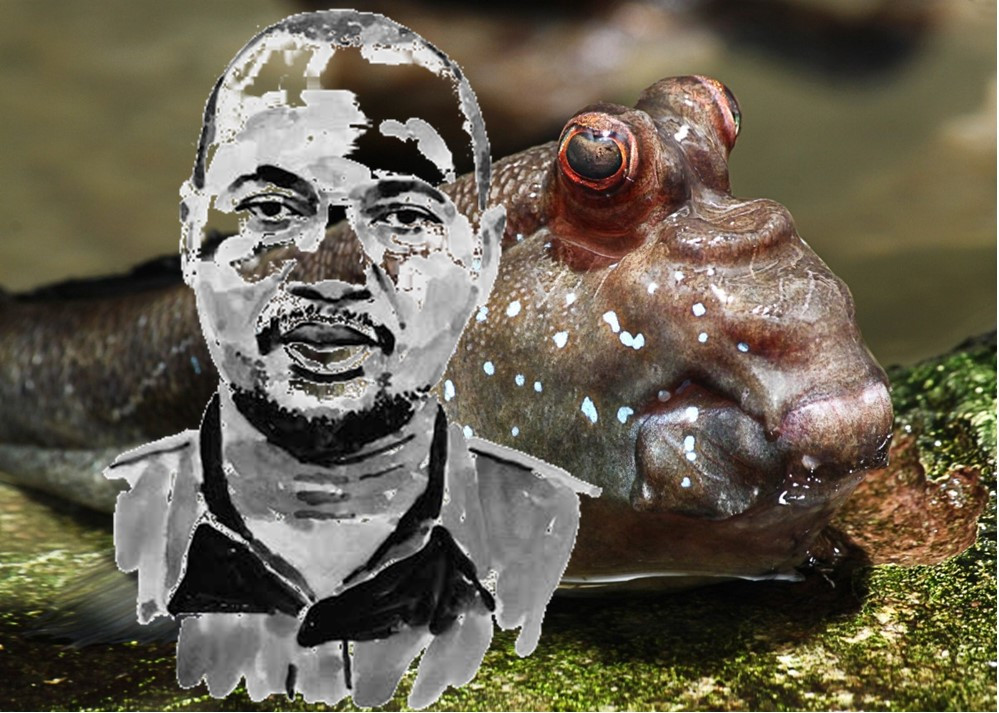 The barred mudskipper (Periophthalmus argentilineatus) is a fascinating amphibious fish species found in mangrove habitats throughout the Indo-Pacific region, including the southwestern Indian Ocean. These fish are well adapted to both terrestrial and aquatic environments, using their pectoral fins to “walk” on land and their gills to breathe underwater.
The barred mudskipper (Periophthalmus argentilineatus) is a fascinating amphibious fish species found in mangrove habitats throughout the Indo-Pacific region, including the southwestern Indian Ocean. These fish are well adapted to both terrestrial and aquatic environments, using their pectoral fins to “walk” on land and their gills to breathe underwater.
Population studies of barred mudskippers in the southwestern Indian Ocean would likely focus on understanding their distribution, abundance, and habitat preferences within mangrove ecosystems. A researcher from Sokoine University of Agriculture, in the College of Agriculture at the Department of Animal, Aquaculture and Range Sciences “Dr. Cyrus Rumisha” uses a combination of field surveys, genetic analysis, and environmental monitoring to assess population dynamics and identify factors influencing their survival and reproduction.
The research findings reveal a significant level of genetic homogeneity among these populations, despite of differences in administrative boundaries. The study indicates that genetic exchange occurs among these populations, displaying a remarkable similarity in their genetic makeup. This genetic homogeneity suggests a strong connection and exchange of genetic material among barred mudskipper populations in the southwestern Indian Ocean, transcending geographical borders and management variations.




